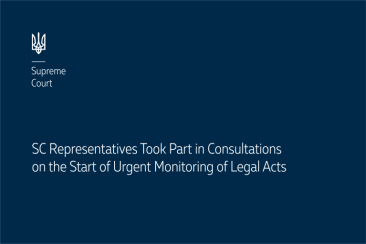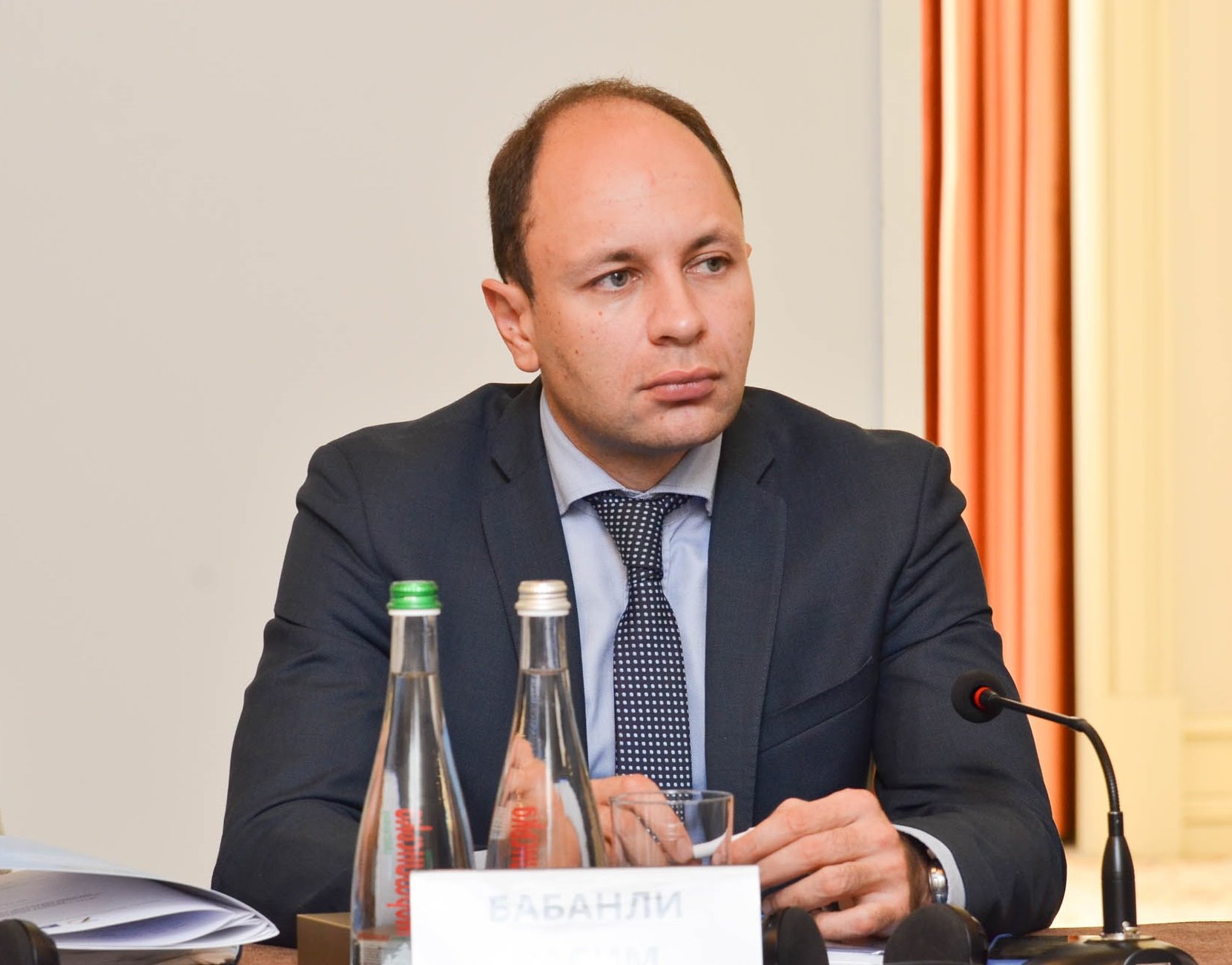Contact center of the Ukrainian Judiciary 044 207-35-46

Representatives of the Supreme Court joined the discussion of the problems of legal proceedings, judiciary and criminal justice, which will be included in the scope of the urgent monitoring study of the Directorate of Justice and Criminal Justice of the Ministry of Justice of Ukraine. The purpose of this monitoring is to develop urgent concepts / proposals for laws and other legal acts in the area that requires prompt legal regulation during martial law.
Judge of the Grand Chamber of the Supreme Court Oleh Tkachuk, Judge of the Administrative Cassation Court of the Supreme Court Nataliia Blazhivska and Head of the Department for Analytical and Legal Work of the Supreme Court Rasim Babanly took part in the online consultations.
One of the key issues for discussion was the issue of overcoming the human resources crisis and the temporary assignment of judges from the temporarily occupied territory to the territory controlled by Ukraine.
Oleh Tkachuk drew attention to the need for an integrated approach to the development of legal acts to ensure effective justice in the context of Russia's armed aggression against Ukraine. In particular, he stressed that the first step was to establish a regulatory framework that would allow for the rapid redeployment of courts and judges from the territories under attack by the armed forces of the occupier, as well as the restoration of justice in the liberated lands. Such measures should ensure the safety of judges, the preservation of court cases and material resources. The leadership of the courts, judges and court staffs must act in accordance with the relevant legal acts. An important aspect is also the legal support of the procedures for the release of Ukrainian judges, who are forcibly kept by the occupying authorities in places of deprivation of liberty and in the occupied territories.
.jpg)
The speaker also stressed the need to preserve the human resources of the judiciary. To do this, in his opinion, a regulatory framework should be formed that allows, without unnecessary formalities, to transfer judges and court staff from the combat zone to the existing courts. Given the conditions of the evacuation, these people need to be provided with housing, and their financial support must be sufficient to resume full-fledged work in the new conditions. The judge of the Grand Chamber of the Supreme Court noted the need to involve in the work of the personnel reserve of judges, which has already been trained by the National School of Judges of Ukraine and the High Qualification Commission of Judges (HQCJ). Simplification of the procedure for their appointment to the positions of judges should be envisaged by introducing appropriate amendments to the Law of Ukraine On the Judiciary and the Status of Judges. In addition, there is an urgent need for legal support for the activities of the Armed Forces of Ukraine through the formation of military justice bodies that meet the needs of martial law.
The process of assignment of judges is not easy. This was emphasized by Rasim Babanly. The Supreme Court received about 400 applications for the assignment of judges to another court, of which decisions were made in respect of 220 judges. "This procedure has greatly helped to overcome the staff shortage in small courts. Thanks to the assignment, for example, it was possible to resume the administration of justice by the court which has not worked for more than a year", said the speaker.

Rasim Babanly supported the need for conceptual monitoring of internal inconsistencies and gaps in laws and other acts to address them, and made some suggestions for improving the process. He is convinced that it is necessary to monitor not only the current legislation, but also the draft laws registered in the Verkhovna Rada of Ukraine in order to develop proposals for improvement already in the light of existing proposals.
The speaker believes that the issue of the Crimean courts should also be included in the monitoring. The fact is that in early May 2022, amendments to the Law of Ukraine On Ensuring the Rights and Freedoms of Citizens and the Legal Regime in the Temporarily Occupied Territory of Ukraine changed the rule governing the territorial jurisdiction of the courts of the Autonomous Republic of Crimea and the city of Sevastopol. Today, this issue should be resolved in the general order - the jurisdiction should be changed by order of the President of the Supreme Court. The consideration of these cases was provided by the courts of Kyiv and the Kherson region.
.jpg)
Discussing security measures in the functioning of the courts and the professional activities of judges, Nataliia Blazhivska supported the need to adopt legislation on the remote administration of justice. The working group has been working on the relevant draft law since the first days of the full-scale invasion, the document will help solve a number of problems that have arisen under martial law, and is based on the positive experience of European countries (including Poland) that introduced a remote justice regime in connection with the crisis caused by quarantine measures due to the coronavirus. A detailed analysis of the legislation of European countries was provided to the members of the working group by the EU Project Pravo-Justice. According to her, in addition to a partial solution to the safety of judges, court employees and, above all, the participants in the case, this project also significantly solves another important issue - the continuity of the administration of justice.
“Assignment of judges, changing the territorial jurisdiction of courts and remote justice - none of these tools is a panacea. But each of them is aimed at ensuring the constitutional principle of the inviolability and continuity of justice. And the judicial system is ready for remote justice. Skepticism about the introduction of such an innovation as remote justice can be overcome through a professional discussion of this issue by a wide legal audience, involving, in particular, parliamentarians to solve all technical and problematic problems,” said Nataliia Blazhivska. "Indeed, there are risks, but they can really be minimized," the speaker is convinced. In addition, it is time to revise the procedural rules for the resumption of lost proceedings, because in the conditions of war more and more parties are facing this problem.
Consultations on the start of urgent monitoring of legislation on the judiciary, legal proceedings and criminal justice continued on June 13-15, 2022 in an online format. The Directorate of Justice and Criminal Justice of the Ministry of Justice of Ukraine together with partners will prepare an urgent monitoring within a month and plans to present it at the end of July 2022.